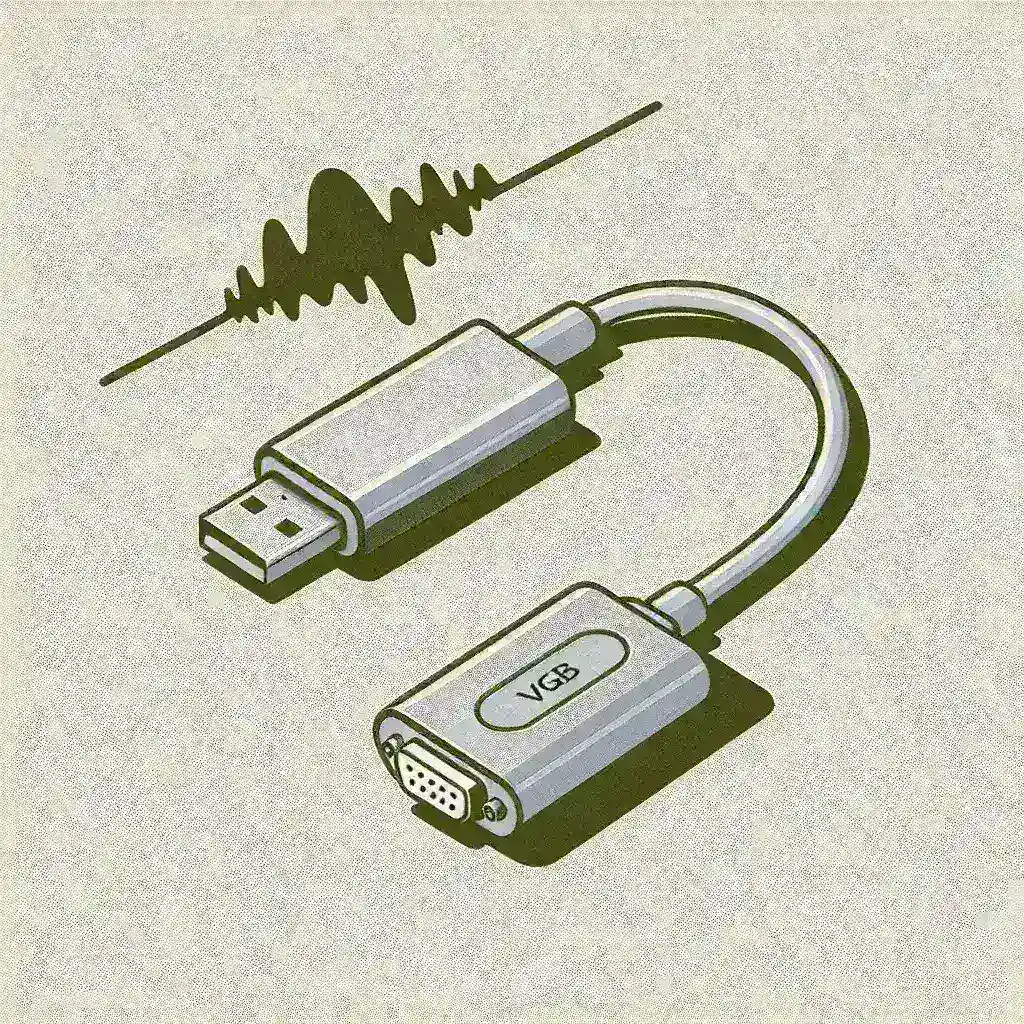Understanding USB to VGA Adapters
USB to VGA adapters are essential tools for connecting devices with USB ports to VGA displays. They are primarily used to extend or mirror displays from laptops and computers to external monitors or projectors. However, a common question arises: does audio transmission occur through these adapters? Let’s explore this in detail.
What is a USB to VGA Adapter?
A USB to VGA adapter converts the USB signal into a VGA signal, allowing users to connect their laptop or desktop computer to a VGA monitor. These adapters are especially popular for older monitors that do not have HDMI or DisplayPort inputs.
Key Features of USB to VGA Adapters
- Video Output: These adapters primarily focus on providing video output, enabling you to extend your display.
- Driver Installation: Most USB to VGA adapters require driver installation for optimal performance.
- Multiple Displays: Some models allow the connection of multiple monitors from a single USB port.
Audio Support Through USB to VGA Adapters
When using a USB to VGA adapter, it is important to note that these devices are designed primarily for video output. This leads to a significant limitation regarding audio transmission.
Why USB to VGA Adapters Do Not Support Audio
- VGA Limitations: VGA (Video Graphics Array) is an analog video interface that does not carry audio signals. Therefore, even if the adapter converts the USB signal to VGA, audio signals cannot be transmitted through it.
- Design Purpose: The main design purpose of USB to VGA adapters is to provide video output. Audio transmission is not part of their intended use.
- Alternative Solutions: Users looking for audio output usually need to utilize additional methods, such as connecting speakers directly to the computer or using HDMI adapters that support both video and audio.
Alternative Options for Audio Transmission
If you need to transmit audio along with video, consider the following alternatives:
- USB to HDMI Adapter: Unlike VGA, HDMI supports both video and audio signals, making it a preferable choice if you want to connect to modern displays.
- External Speakers: Connecting external speakers directly to your device can ensure high-quality audio output while using a USB to VGA adapter for video.
- Wireless Solutions: Utilizing Bluetooth speakers or other wireless audio devices can eliminate the hassle of cable connections.
Conclusion
In conclusion, audio is not supported through a USB to VGA adapter due to the inherent limitations of the VGA interface. For users needing both audio and video, alternative solutions like USB to HDMI adapters or external speakers should be considered. Always ensure that your equipment aligns with your audio-visual needs to enhance your viewing experience.

